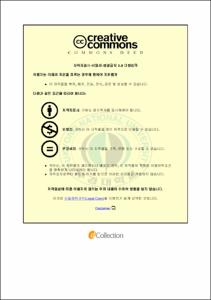학업적 자기효능감과 과학불안이 과학학업성취에 미치는 영향
- Alternative Title
- The Effect of Academic Self-Efficacy and Science Anxiety on Science Achievement
- Abstract
- 본 연구의 목적은 중학교 학생을 대상으로 과학학업성취에 대하여 학업적 자기효능감과 과학불안이 얼마만큼의 역할을 담당하고 있으며 어떠한 요인이 과학학업성취에 영향을 미치는가를 성별로 구별하여 어떤 차이가 있으며 학년별로는 어떠한 차이가 있는가를 살펴보고자 하였다.
이를 위해 본 연구는 부산시내에 소재한 3개의 중학교를 선정하여 학년별로 2학급씩 668명의 학생을 대상으로 하였다. 사용된 측정도구로는 학업적 자기효능감척도(김아영 ․ 박인영, 2001)와 과학불안 측정도구(이재천, 1992)를 사용했고, 과학학업성취로 1학년은 배치고사 성적을 사용하였고 2, 3학년은 과학교과의 2009년 2학기 기말고사 성적을 사용하였다.
본 연구의 결과를 요약하면 다음과 같다.
첫째, 학업적 자기효능감과 과학학업성취 사이에서 정적 상관관계가 나타났고, 과학불안과 과학학업성취 사이에서는 부적 상관관계가 나타났다.
둘째, 과학학업성취에 미치는 유의미한 예언변인은 과학불안의 과학학습내용, 과학에 대한 평가, 학업적 자기효능감의 자기조절 효능감, 과제난이도 선호였고 가장 큰 설명력을 갖는 요인은 과학학습내용이었다.
셋째, 과학학업성취에 영향을 주는 유의미한 예언변인을 성별로 살펴보면, 남학생은 과학불안의 과학학습내용, 과학에 대한 평가, 학업적 자기효능감의 자기조절 효능감, 과제난이도 선호가, 여학생은 과학 불안의 과학에 대한 평가, 과학적 원리수행, 학업적 자기효능감의 자기조절 효능감, 과제난이도 선호이었다. 남학생의 과학학업성취는 과학학습내용이, 여학생의 과학학업성취는 과학에 대한 평가가 가장 큰 설명력을 갖는 것으로 나타났다.
넷째, 학년별로 살펴보면, 1학년은 과학불안의 과학학습내용, 과학에 대한 평가, 과학관련 상황수행, 학업적 자기효능감의 자신감, 자기조절 효능감, 2학년은 과학불안의 과학에 대한 평가, 과학적 원리수행, 학업적 자기효능감의 과제난이도 선호, 자기조절 효능감, 3학년은 과학불안의 과학학습내용, 과학에 대한 평가, 학업적 자기효능감의 자기조절 효능감이 과학학업성취에 영향을 주는 유의미한 예언변인으로 나타났다. 가장 큰 설명력을 갖는 요인으로 1학년은 과학학습내용, 2학년은 과학에 대한 평가, 3학년은 자기조절 효능감이었다.
결론적으로, 학업적 자기효능감과 과학불안의 각각의 요인들이 과학학업성취에 미치는 영향은 성별, 학년별로 차이가 있는 것으로 나타났으므로 과학교과를 지도함에 있어 성별로, 학년별로 구분하여 접근한다면 과학학업성취는 높아진다는 것을 알 수 있다.
The purpose of this study was to examine that how much the academic self-efficacy and the science anxiety affect science achievement and figure out that which factors have an influence on science achievement by gender and grade.
To accomplish this goal, three middle schools located downtown in Busan were selected, and the participants of this study were 668 students which were from two classes of each three grade. The Academic Self-Efficacy Scale (Kim & Park , 2001) and the Science Anxiety Measurement Scale (Lee, 1992) were used as the measurement tools. The result of placement exam was used for the first grade, and the final-term exam of 2009 second semester was used for the second and third grade to estimate students’ science achievement.
The results of this thesis can be summarized as follows.
Firstly, the positive correlation was found between the academic self-efficacy and science achievement, and the negative correlation between the science anxiety and science achievement.
Secondly, the meaningful prediction variables which influence on science achievement were the scientific learning contents, the evaluation on science, the self-control efficacy, and the task difficulty preference. Among them the scientific learning contents appeared to have the most explanatory power.
Thirdly, according to gender, the meaningful prediction variables which influence on science achievement for boys were the scientific learning contents, the evaluation on science, the self-control efficacy, and the task difficulty preference. For girls, the meaningful prediction variables were the evaluation on science, the performance of scientific principles, the self-control efficacy, and the task difficulty preference. The scientific learning contents for boys and the evaluation on science for girls appeared to have the most explanatory power on science achievement.
Fourthly, looking into grades, the meaningful prediction variables affecting science achievement were produced to be the scientific learning contents, the evaluation on science, the situational performance related to science, the self-confidence, and the self-control efficacy for the first grade, the evaluation on science, the performance of scientific principles, the task difficulty preference, and the self-control efficacy for the second grade, and the scientific learning contents, the evaluation on science, and the self-control efficacy for the third grade. The factor of the most reasonable explanation was the scientific learning contents for the first grade, the evaluation on science for the second grade, and the self-control efficacy for the third grade.
In conclusion, several differences were found between genders and among grades in the effects of each factor of the academic self-efficacy and the science anxiety on science achievement, so it can be concluded that science achievement can be enhanced by approaching it according to gender and grade when teaching science.
- Issued Date
- 2010
- Awarded Date
- 2010. 8
- Type
- Dissertation
- Keyword
- 과학불안
- Publisher
- 부경대학교 교육대학원
- Alternative Author(s)
- Kim, Hyun Im
- Affiliation
- 부경대학교 교육대학원
- Department
- 교육대학원 생물교육전공
- Advisor
- 김군도
- Table Of Contents
- ABSTRACT
Ⅰ. 서 론 1
1. 연구의 필요성 및 목적 1
2. 연구 문제 4
3. 용어의 정리 5
4. 연구의 제한점 6
Ⅱ. 이론적 배경 8
1. 학업적 자기효능감과 학업성취도 선행연구 고찰 8
2. 과학불안과 학업성취도 선행연구 고찰 14
Ⅲ. 연구 방법 22
1. 연구 대상 22
2. 연구 절차 22
3. 검사 도구 23
4. 분석 방법 27
Ⅳ. 연구결과 및 분석 28
1. 과학학업성취에 대한 과학불안과
학업적 자기효능감의 설명력 28
2. 과학학업성취에 대한 과학불안과
학업적 자기효능감의 성별 설명력 30
3. 과학학업성취에 대한 과학불안과
학업적 자기효능감의 학년별 설명력 34
Ⅴ. 결론 및 제언 41
1. 결론 41
2. 제언 44
국문초록 46
참고문헌 48
부 록 52
감사의 글 57
- Degree
- Master
- Files in This Item:
-
-
Download
 학업적 자기효능감과 과학불안이 과학학업성취에 미치는 영향.pdf
기타 데이터 / 851.24 kB / Adobe PDF
학업적 자기효능감과 과학불안이 과학학업성취에 미치는 영향.pdf
기타 데이터 / 851.24 kB / Adobe PDF
-
Items in Repository are protected by copyright, with all rights reserved, unless otherwise indicated.